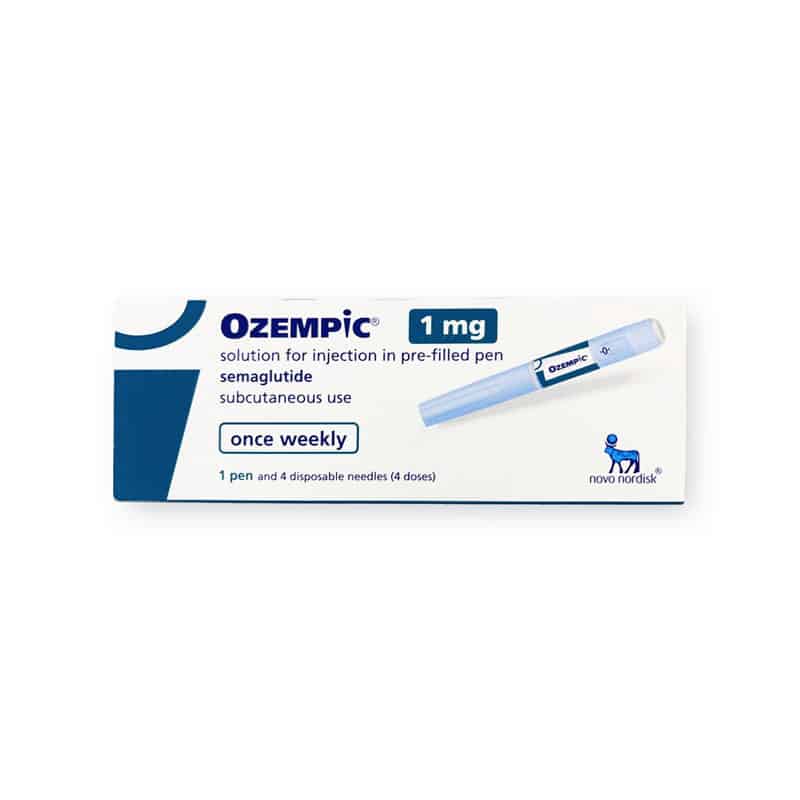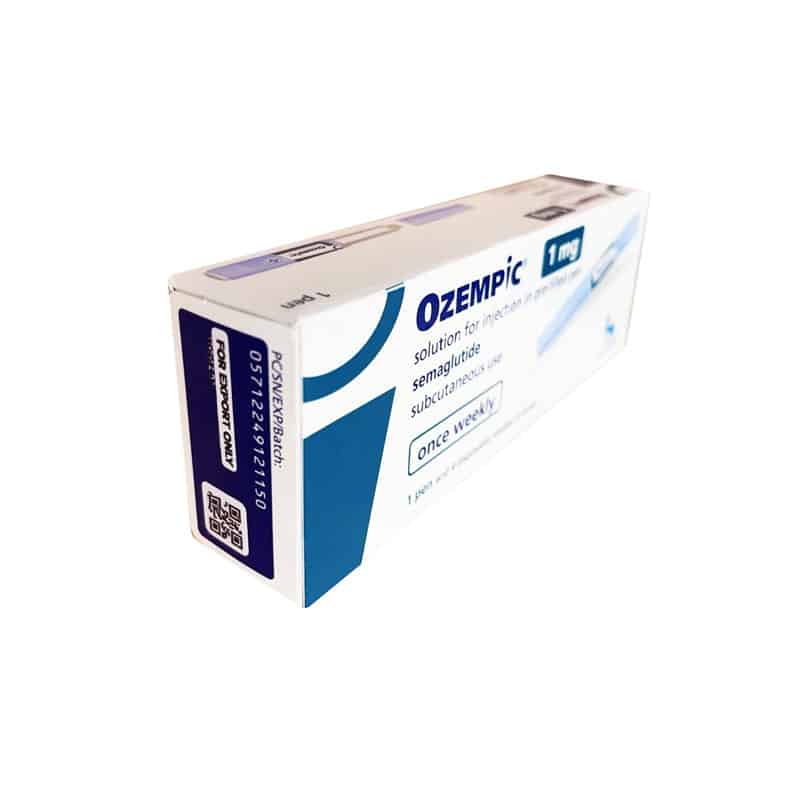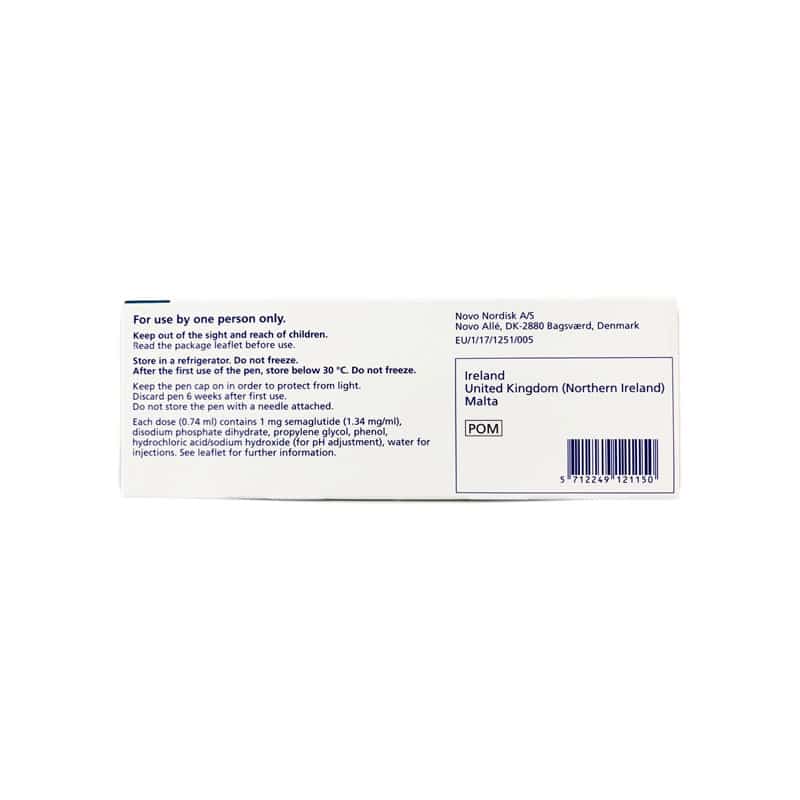OZEMPIC® Indications for Use
OZEMPIC® (semaglutide) is a glucagon-like peptide-1 (GLP-1) receptor agonist indicated for:
- Type 2 Diabetes Mellitus: Used as an adjunct to diet and exercise to improve glycemic control in adults.
- Cardiovascular Risk Reduction: Reduces the risk of major adverse cardiovascular events (e.g., cardiovascular death, non-fatal myocardial infarction, or non-fatal stroke) in adults with type 2 diabetes mellitus and established cardiovascular disease.
Limitations:
- Not recommended for patients with type 1 diabetes mellitus.
- Not studied in patients with a history of pancreatitis.
OZEMPIC® Dosage Information
OZEMPIC® is administered via a subcutaneous injection, typically once weekly. The injection can be taken at any time of day, with or without food. The initial dose is gradually increased to achieve better glycemic control:
- Starting dose: 0.25 mg once weekly for the first 4 weeks (not effective for glycemic control).
- Increase to 0.5 mg after 4 weeks. If additional glycemic control is needed, the dose can be increased to 1 mg once weekly after at least 4 weeks on the lower dose.
- If further control is needed, the dose may be raised to 2 mg after 4 weeks on 1 mg.
OZEMPIC® Side Effects and Precautions
OZEMPIC® has several common and serious side effects. It’s important to monitor patients closely for any adverse reactions.
- Common Side Effects (occurring in more than 5% of patients):
- Nausea (15.8-20.3% of patients)
- Vomiting, diarrhea, abdominal pain, constipation.
- Serious Side Effects:
- Thyroid C-cell tumors: In rodent studies, semaglutide caused dose-dependent thyroid tumors. It is unclear if this risk applies to humans. OZEMPIC® is contraindicated in patients with a personal or family history of medullary thyroid carcinoma (MTC) or Multiple Endocrine Neoplasia syndrome type 2 (MEN 2).
- Pancreatitis: Monitor for signs of pancreatitis (severe abdominal pain). Discontinue use if pancreatitis is confirmed.
- Hypoglycemia: Particularly when used with insulin or sulfonylurea.
- Acute kidney injury: Renal function should be monitored in patients with renal impairment who experience severe gastrointestinal side effects.
OZEMPIC® Drug Interactions
- Insulin Secretagogues (e.g., sulfonylureas): Co-administration increases the risk of hypoglycemia. Dose adjustments of insulin or insulin secretagogues may be needed to prevent this.
- Oral Medications: OZEMPIC® delays gastric emptying, which may affect the absorption of some oral medications.
OZEMPIC® Contraindications
- Personal or family history of MTC or MEN 2.
- Serious hypersensitivity reactions to semaglutide or any of the excipients.
Clinical Studies or Real-World Outcomes
Several clinical trials support the efficacy of OZEMPIC® in controlling blood sugar levels and reducing cardiovascular risks:
- Monotherapy Trial:
- Patients treated with OZEMPIC® 1 mg saw an average HbA1c reduction of 1.6% after 30 weeks, compared to 0.1% for placebo. Approximately 70% of patients achieved HbA1c <7%.
- Weight loss averaged 4.7 kg for patients on 1 mg compared to 1.2 kg in the placebo group.
- Combination Therapy with Metformin:
- In a 56-week trial, OZEMPIC® combined with metformin resulted in a significant HbA1c reduction of 1.5% (for 1 mg dose) compared to sitagliptin.
- Cardiovascular Outcomes:
- A 2-year cardiovascular trial showed that OZEMPIC® significantly reduced the incidence of major adverse cardiovascular events compared to placebo.
OZEMPIC® Use in Specific Populations
- Pregnancy: OZEMPIC® should be discontinued at least 2 months before a planned pregnancy due to the long washout period.
- Pediatrics: Safety and efficacy have not been established in patients under 18.
- Renal and Hepatic Impairment: No dosage adjustment is necessary for patients with renal or hepatic impairment.



